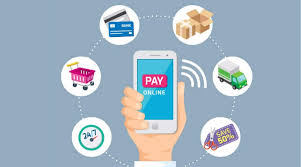How to Choose the Best Payment Gateway for Your Business
Choosing the best payment gateway for your business is a critical decision that can significantly impact your sales, customer experience, and overall growth. With numerous options available, it can be challenging to determine which one will best meet your needs. This guide will walk you through the essential factors to consider when selecting a payment gateway, helping you make an informed choice.
A payment gateway is a technology that facilitates online payments by securely transmitting payment information from the customer to the merchant and then to the bank. It ensures the transaction is authorized and funds are transferred appropriately. Here are the key components of a payment gateway:
Key Factors to Consider
1. Security
Security should be your top priority when choosing a payment gateway. Look for gateways that comply with the Payment Card Industry Data Security Standard (PCI-DSS) and offer robust encryption and tokenization. Additionally, consider features like fraud detection and prevention tools to safeguard your business and customers.
2. Ease of Integration
The payment gateway you choose should seamlessly integrate with your existing systems, including your e-commerce platform, accounting software, and other business tools. This ensures a smooth setup process and minimizes disruptions to your operations. Check if the gateway provides plugins or APIs that simplify integration.
3. Supported Payment Methods
Different customers prefer different payment methods, so it's essential to choose a gateway that supports a variety of options, including credit and debit cards, digital wallets (like PayPal, Apple Pay, and Google Wallet), and alternative payment methods (such as bank transfers and buy-now-pay-later services). The more options you offer, the more likely you are to capture sales from diverse customer segments.
4. Fees and Costs
Payment gateways charge various fees, including setup fees, monthly fees, transaction fees, and chargeback fees. It's crucial to understand the fee structure of each gateway and how it will impact your bottom line. Compare the costs against the features and services provided to ensure you're getting the best value.
5. Customer Support
Reliable customer support is essential, especially if you encounter issues with transactions or technical difficulties. Choose a payment gateway that offers 24/7 support through multiple channels, such as phone, email, and live chat. Timely and effective support can help you resolve problems quickly and maintain customer trust.
6. Transaction Speed
The speed at which transactions are processed can affect your cash flow and customer satisfaction. Some gateways offer faster processing times than others. Ensure that the gateway you choose can handle high transaction volumes efficiently, especially during peak sales periods.
7. Global Reach
If you plan to sell internationally, consider a payment gateway that supports multiple currencies and languages. This will make it easier for international customers to complete transactions and reduce barriers to purchase. Additionally, check for compliance with international regulations and standards.
8. Reputation and Reviews
Research the reputation of potential payment gateways by reading reviews and testimonials from other businesses. Look for feedback on reliability, ease of use, customer service, and any potential issues. A well-regarded gateway with positive reviews is more likely to meet your needs and provide a good experience.
Conclusion
Selecting the best payment gateway service provider for your business involves careful consideration of several factors, including security, ease of integration, supported payment methods, fees, customer support, transaction speed, global reach, and reputation. By thoroughly evaluating your options and prioritizing your specific needs, you can choose a payment gateway that enhances your customer experience, boosts sales, and supports your business growth.
Remember, the right payment gateway is not just a transaction facilitator but a partner that helps you streamline operations, increase efficiency, and provide a secure and convenient payment experience for your customers. Take the time to make an informed decision, and your business will reap the benefits.
.jpg)


Comments
Post a Comment